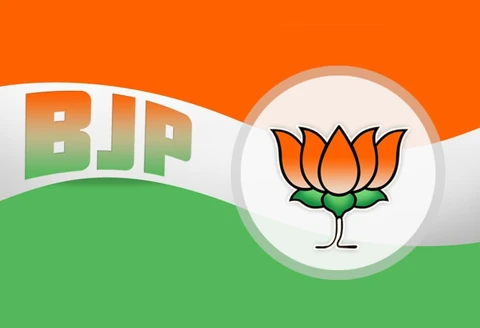Omar Vs BJP: Ladakh Statehood Row Sparks Accusations of Divisive Politics and Power Centralization
By: Javid Amin | 30 September 2025
A Political Storm After Leh Violence
The tragic Leh firing incident, which claimed four lives including a Kargil war veteran, has not only triggered protests across Ladakh but also sparked a sharp political battle in Jammu & Kashmir.
The Bharatiya Janata Party (BJP) has now accused Chief Minister Omar Abdullah of trying to revive “divisive politics” by siding with Congress and blaming the administration for the unrest. Omar, however, has firmly rejected these charges, insisting that dialogue—not repression—holds the key to peace in Ladakh.
BJP’s Counterattack: “Omar is Politicizing Ladakh”
BJP leaders wasted no time in hitting back at Omar’s defense of the Congress and his criticism of the Union Territory administration. Their allegations came in three parts:
🔹 Blame Game Against Omar
According to BJP spokespersons, Omar Abdullah is “politicizing the unrest” to divert public attention from Congress-linked leaders accused of instigating violence.
They argue that by defending Congress and attacking the BJP-led Centre, Omar is attempting to shift the narrative ahead of the crucial October 13 J&K Assembly session.
🔹 Congress Councillor Under Fire
The BJP specifically pointed to Phuntsog Stanzin Tsepag, a Congress councillor, who has reportedly been booked by authorities for delivering a provocative speech at the hunger strike site in Leh before the violence broke out.
Party leaders said this proves that Congress had a role in fueling tensions, and accused Omar of giving them cover.
🔹 Reviving Old Fault Lines
The BJP also accused Omar of “reviving old regional and communal fault lines” between Leh and Kargil. They argue that such politics—rooted in divisions between Buddhist-majority Leh and Muslim-majority Kargil—was exactly what the abrogation of Article 370 in 2019 sought to end.
By “siding with Congress,” the BJP claims Omar is trying to bring back the politics of polarization that long haunted J&K’s governance.
Omar Abdullah’s Response: “Dialogue, Not Blame”
Omar Abdullah dismissed the BJP’s accusations in characteristically sharp words:
🔹 Rejecting BJP’s Charges
He quipped:
“Had the Congress been so powerful that it could cause riots in Ladakh, why didn’t it win the council elections?”
By highlighting Congress’s weak electoral presence in Ladakh, Omar argued that blaming the party for orchestrating large-scale protests was politically absurd.
🔹 Holding Administration Accountable
Instead of scapegoating, Omar held the Lieutenant Governor-led administration responsible for the failure to maintain peace in Ladakh.
He said the Centre had opted for “top-down solutions” and ignored Ladakh’s grassroots voices, a mistake that has now resulted in tragedy.
🔹 Defending Congress’s Role in Ladakh
Omar further defended Congress, recalling its historic role in engaging with Ladakh’s autonomy aspirations through democratic dialogue. In contrast, he accused the BJP of centralizing power in Delhi and ignoring the tribal and ecological concerns of Ladakhis.
The Political Backdrop: Statehood Battle in Ladakh
The clash between BJP and Omar comes against the backdrop of an escalating statehood movement in Ladakh.
Since Article 370’s abrogation in August 2019, Ladakh has functioned as a Union Territory without an elected assembly. Initially celebrated in Leh, the move soon led to discontent over:
-
Lack of constitutional safeguards under the Sixth Schedule
-
Fears over land ownership and jobs being taken by outsiders
-
Environmental concerns in the fragile Himalayan ecosystem
-
Centralized governance without representation
The Leh firing incident has only deepened resentment, with the Apex Body Leh (ABL) and Kargil Democratic Alliance (KDA) stepping up their demands.
Why This Matters Ahead of Assembly Session
With the October 13 J&K Assembly session approaching, the Ladakh crisis is set to dominate political debate:
-
The BJP will likely defend its governance model while framing Congress as instigators.
-
Omar Abdullah and the NC-Congress alliance will push for dialogue and accuse Delhi of mishandling Ladakh.
-
The Ladakh leadership (ABL & KDA) will watch closely, as the session could shape future engagement with the Centre.
For the people of Ladakh, however, the real question remains: Will their voices finally be heard, or will politics once again overshadow their aspirations?
Conclusion: Politics vs. People’s Aspirations
The BJP’s charge that Omar Abdullah is reviving divisive politics reflects the sharpened battlelines in J&K politics. Omar’s defense, meanwhile, underscores his attempt to position himself as a voice of reason and dialogue in contrast to what he calls Delhi’s “authoritarian approach.”
What is clear is that Ladakh’s demand for statehood and safeguards has now become not just a local struggle but also a political flashpoint between two national parties.
As the Assembly session nears, the issue of Ladakh could become a test of whether Indian politics is capable of healing divides—or exploiting them further.


